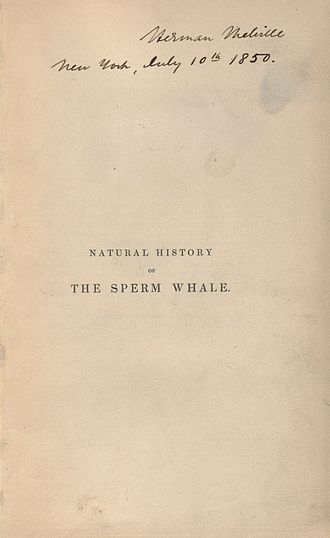In Moby Dick there is a long chapter that is meant to be an excerpt from a textbook on whales. Did Melville compose that or was it actually copied from a textbook on whales?
-
2I do not believe this question is at all on-topic for this site. I've tried to think of other sites that we could recommend migrating it to, but it is off-topic for Writer's. If anyone has other suggestions let me know.– Steven DrennonCommented Dec 26, 2014 at 23:31
-
@StevenDrennon: How about Biology, with regard to the "cetological" reference? The question (as re-written) would be, "Would a layman know this stuff, or would he need to get it from an expert– Tom AuCommented Dec 27, 2014 at 17:59
-
@twosheds:Fair enough.– Tom AuCommented Dec 27, 2014 at 20:04
-
3people have been editing my question to make it be off topic. I don'c care whether Melville was able to write it (a speculative social science question), I only care whether he did actually write it ( a history question)– Clint EastwoodCommented Dec 28, 2014 at 0:55
-
3This is a history question. Reopen.– Ne MoCommented Dec 28, 2014 at 13:28
1 Answer
The Cetology of Moby Dick was written by Herman Melville, but it draws upon the works of several naturalists and anatomists of his time, including:
- Thomas Beale, who wrote The Natural History of the Sperm Whale
- Frederick Debell Bennett, who wrote the Narrative of a Whaling Voyage Round the Globe
Both were surgeons on whaling ships, and wrote of the anatomy of whales. They, and Melville as well, further relied upon the writings of the great naturalist John Hunter, especially his Observations on the Structure and Oeconomy of Whales.
Wikipedia has an image of Melville's copy of Beale's book:
